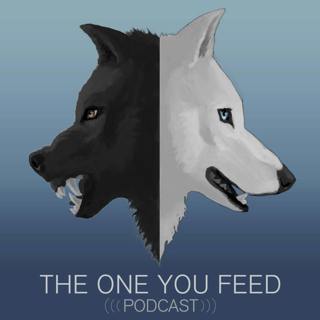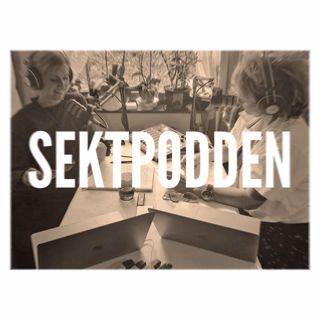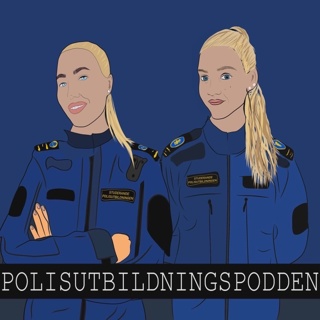
Jackie Warner
This week we talk to Jackie Warner about using exercise and food to improve low moodJackie Warner is best known as the star of Bravo’s “Work Out” and “Thintervention”Jackie is one of the world’s most sought-after fitness experts. She wrote two New York Times Bestsellers, This is Why You’re Fat (and How to Get Thin Forever), and 10 Pounds in 10 Days. Her new is book This is Why You’re Sick and Tired. Jackie has contributed to over thousands of articles, making her the among the most quoted fitness authorities globally. She also stars in several best-selling DVDs. Our Sponsor This Week is Aloha- Try their new Plant Based Superfood Smoothie Kit. Enter GETFIT20 for 20% off your order. In This Interview Jackie and I Discuss...The One You Feed parableHer new book: This is Why You Are Sick and TiredMonitoring whether our energy brings happiness or sadness to others.Using food and exercise to improve depression.The prevalence of toxicity in our cells.For additional show notes visit our website Some of our most popular interviews that you might also enjoy:Dan HarrisMaria PopovaTodd Henry- author of Die EmptyRandy Scott HydeSee omnystudio.com/listener for privacy information. See Privacy Policy at https://art19.com/privacy and California Privacy Notice at https://art19.com/privacy#do-not-sell-my-info. Learn more about your ad choices. Visit megaphone.fm/adchoices
17 Juni 201545min

Mini Episode: The Elephant and The Rider
Mini Episode: The Elephant and The RiderOne of my favorite books is The Happiness Hypothesis: Finding Modern Truth in Ancient Wisdom by Jonathan Haidt.In it, Haidt poses several "Great Ideas" on happiness espoused by thinkers of the past - Plato, Buddha, Jesus and others - and examines them in the light of contemporary psychological research, extracting from them any lessons that still apply to our modern lives. Central to the book are the concepts of virtue, happiness, fulfillment, and meaning.He uses a metaphor of a rider on the back of an elephant in which the conscious mind is the rider and the unconscious mind is the elephant. The rider is unable to control the elephant by force: this explains many puzzles about our mental life, particularly why we have such trouble with weakness of will. Learning how to train the elephant is the secret of self-improvement. Visit our website Some of our most popular interviews that you might also enjoy:Kino MacGregorStrand of OaksMike Scott of the WaterboysTodd Henry- author of Die EmptyRandy Scott HydeSee omnystudio.com/listener for privacy information. See Privacy Policy at https://art19.com/privacy and California Privacy Notice at https://art19.com/privacy#do-not-sell-my-info. Learn more about your ad choices. Visit megaphone.fm/adchoices
13 Juni 20157min

Karen Valencic
This week we talk to Karen Valencic about using movement to get unstuckKaren Valencic is the founder of Spiral Impact, an Indianapolis-based speaking, training and development company, which she founded in 1992. Valencic leverages her expertise in communication, science and martial arts to provide a distinct perspective on performance improvement. Karen is the author of the book Spiral Impact: The Power to Get It Done with Grace, and the handbook Giving Deliberate Feedback for Leaders.As a black belt in Aikido, the Japanese art of reconciliation, Karen weaves examples from the martial art practice mat into her writing and speaking. Aikido is a martial art based on position rather than force. Prior to establishing Spiral Impact, Karen utilized her degree in Mechanical Engineering as a project engineer in the automobile industry. Our Sponsor This Week is Aloha- Try their new Plant Based Superfood Smoothie Kit. Enter GETFIT20 for 20% off your order. In This Interview Karen and I Discuss...The One You Feed parableAikido: The Japanese Art of ReconciliationPosition vs. ForceHer book: Spiral Impact: The Power to Get it Done With Grace For more show notes visit our website Some of our most popular interviews that you might also enjoy:Dan HarrisMaria PopovaTodd Henry- author of Die EmptyRandy Scott HydeSee omnystudio.com/listener for privacy information. See Privacy Policy at https://art19.com/privacy and California Privacy Notice at https://art19.com/privacy#do-not-sell-my-info. Learn more about your ad choices. Visit megaphone.fm/adchoices
10 Juni 201546min

Akshay Nanavati
This week we talk to Akshay Nanavati about learning to use our fearAkshay Nanavati is an explorer, volunteer firefighter, former U.S. Marine, and masters graduate in journalism from the S.I. Newhouse School of Public Communications. He has been mountaineering all over the world, glacier caving in Nepal, skydiving, ice diving, cave diving, scuba diving, and spent one month dragging a 190 pound sled 350 miles across the second largest icecap in the world.His current project is to run across every country in the world. His website is called Existing to Living and uses the principles of human psychology, neuroscience and a greater understanding of how we function as human beings, to help you master your mind, body, heart, spirit and business. Our Sponsor This Week is Aloha- Try their new Plant Based Superfood Smoothie Kit. Enter GETFIT20 for 20% off your order. In This Interview Akshay and I Discuss...The One You Feed parable.The difference between the human brain and the animal brain.His goal of running across every country in the world.Breaking things down into smaller steps and taking them one at a time.Learning to control how we respond to our environments.His forthcoming book: The Other Side of Fear.How fear and nirvana work together.For more show notes please visit our webpage Some of our most popular interviews that you might also enjoy:Dan HarrisMaria PopovaTodd Henry- author of Die EmptyRandy Scott HydeSee omnystudio.com/listener for privacy information. See Privacy Policy at https://art19.com/privacy and California Privacy Notice at https://art19.com/privacy#do-not-sell-my-info. Learn more about your ad choices. Visit megaphone.fm/adchoices
2 Juni 201536min

Bonus Re-Release
We have gotten so many questions about habits lately that we thought we would re-release one of our most popular episodes of 2014 with James Clear. With classic pieces of advice like "Never Miss Twice" and "reduce the scope, stick to the schedule" this episode is a worth hearing again or for the first time if you are newer to the show. ----------------------------------------James Clear is an entrepreneur, weightlifter, and travel photographer. He writes at JamesClear.com, where he talks about scientific research and real-world experiences that help you rethink your health and improve your life. His blog gets millions of visitors per year. In This Interview James and I Discuss...The One You Feed parable.How money can be an addiction that society rewards.How much we over estimate one defining moment versus steady day to day behavior.The aggregation of marginal gains- improve by 1% in everything you do.Small changes can lead to big results.Reduce the Scope, Stick to The Schedule.Not letting your emotions drive your behavior.The difference between professionals and amateurs.It's not the result that matters but the action and habit.The 2 Minute Rule.How willpower often comes after we start, not before."Start with something so easy you can't say no to it"- Leo BabutaYou don't have to be great at the start, you just need to be there.Learning from our failures and seeing it as a data point.Seeing failure as an event, not as part of us.How mentally tough people define themselves by their persistence, not failure.See omnystudio.com/listener for privacy information. See Privacy Policy at https://art19.com/privacy and California Privacy Notice at https://art19.com/privacy#do-not-sell-my-info. Learn more about your ad choices. Visit megaphone.fm/adchoices
28 Maj 201555min

Simon Sinek
This week we talk to Simon Sinek about leadershipSimon Sinek is an author best known for popularizing the concept of "the golden circle" and to "Start With Why", described by TED as "a simple but powerful model for inspirational leadership all starting with a golden circle and the question "Why?"'. He joined the RAND Corporation in 2010 as an adjunct staff member, where he advises on matters of military innovation and planning.His first TEDx Talk on "How Great Leaders Inspire Action" is the 3rd most viewed video on TED.com. His 2009 book on the same subject, Start With Why: How Great Leaders Inspire Everyone to Take Action (2009) delves into what he says is a naturally occurring pattern, grounded in the biology of human decision-making, that explains why we are inspired by some people, leaders, messages and organizations over others.His latest book is called Leaders Eat Last: Why Some Teams Pull Together and Others Don’t In This Interview Simon and I Discuss...The One You Feed parable.How good leadership is feeding the good wolf.How good leadership fills the environment with love, empathy and kindness.The four main neurotransmitters that regulate human emotion.How oxytocin inhibits addiction.The Rat Park experiments.The Cost of Leadership is self-interest.How leadership does not come with rank. For more show notes visit our website Some of our most popular interviews that you might also enjoy:Dan HarrisMaria PopovaTodd Henry- author of Die EmptyRandy Scott HydeSee omnystudio.com/listener for privacy information. See Privacy Policy at https://art19.com/privacy and California Privacy Notice at https://art19.com/privacy#do-not-sell-my-info. Learn more about your ad choices. Visit megaphone.fm/adchoices
26 Maj 201538min

Lama Surya Das
This week we talk to Lama Surya Das about looking beyond ourselvesLama Surya Das is one of the foremost Western Buddhist meditation teachers and scholars, one of the main interpreters of Tibetan Buddhism in the West, and a leading spokesperson for the emerging American Buddhism. The Dalai Lama affectionately calls him “The Western Lama.”Surya has spent over forty five years studying Zen, vipassana, yoga, and Tibetan Buddhism with the great masters of Asia, including the Dalai Lama’s own teachers, and has twice completed the traditional three-year meditation cloistered retreat at his teacher’s Tibetan monastery.Surya Das has been featured in numerous publications and major media, including ABC, CNN, MSNBC, NPR, The Washington Post, One segment of the ABC-TV sitcom Dharma & Greg was based on his life (“Leonard’s Return”). Surya has appeared on Politically Correct with Bill Maher, and twice on The Colbert Report.Surya is the author of thirteen books, his latest is called Make Me One With Everything: Buddhist Meditations to Awaken from the Illusion of Separation. In This Interview Surya and I Discuss...The One You Feed parable.The Concept of Inter-Meditation.The Us vs.Them problem.Furthering a collective awakening versus only individual awakening.The process of gazing meditation. For more show notes visit our website Some of our most popular interviews that you might also enjoy:Dan HarrisMaria PopovaTodd Henry- author of Die EmptyRandy Scott HydeSee omnystudio.com/listener for privacy information. See Privacy Policy at https://art19.com/privacy and California Privacy Notice at https://art19.com/privacy#do-not-sell-my-info. Learn more about your ad choices. Visit megaphone.fm/adchoices
20 Maj 201540min

Mini Episode: No Easy Street
Life will always take effortMost of us have a fantasy that we will hit some point where life won't take effort. We will read the right book, learn the right meditation, rub the right crystal and our troubles will vanish.I think this is a fallacy. Life always take effort, and I think this is good news. It's our unrealistic expectations that cause us problems and cause us pass over what works and chase more snake oil.Make the effort, life is worth it. Some of our most popular interviews that you might also enjoy:Kino MacGregorStrand of OaksMike Scott of the WaterboysTodd Henry- author of Die EmptyRandy Scott HydeSee omnystudio.com/listener for privacy information. See Privacy Policy at https://art19.com/privacy and California Privacy Notice at https://art19.com/privacy#do-not-sell-my-info. Learn more about your ad choices. Visit megaphone.fm/adchoices
17 Maj 20158min





















